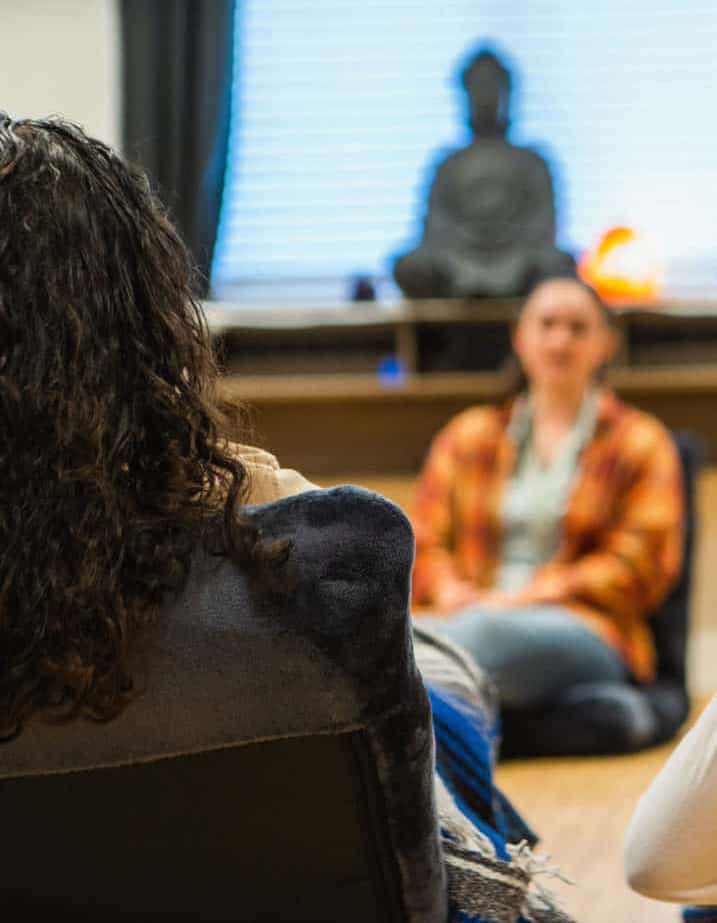Mental Health Month
Mental Health Month gives all of us a valuable opportunity to celebrate the tremendous strides this nation has made in promoting mental health and increasing the public’s knowledge that effective services and support are available.
Over the past 20 years, the Substance Abuse and Mental Health Services Administration and others within the U.S. Department of Health and Human Services and across the Federal Government, the public health community, and the general public have made efforts to increase the importance of understanding both prevention and treatment of mental health problems. These efforts have significantly improved the outlook for those affected by mental illnesses.
Successful efforts that have raised awareness about the importance of mental health and promoted acceptance, support, prevention, and recovery from these mental health conditions include:
- The Affordable Care Act expands health insurance coverage to approximately 30 million Americans by 2016, and an estimated 11 million of these newly eligible beneficiaries will have substance abuse and/or mental health service needs.
- The Community Mental Health Services Block Grant provides financial assistance to states and territories to carry out state plans to offer comprehensive community-based mental health services and evidence-based practices to adults with serious mental illnesses and children with serious emotional disturbances.


Get Your Life Back
Find Hope & Recovery. Get Safe Comfortable Detox, Addiction Rehab & Dual Diagnosis High-Quality Care.
Hotline(844) 597-1011- Mental Health Parity and Addiction Equity Act of 2008 eliminates the practice of unequal health treatment and improves access to much needed mental health and substance use disorder treatment services through more equitable insurance coverage.
- The Garrett Lee Smith State/Tribal Suicide Prevention Program facilitates:
- Coordination across government agencies and the private sector in the development
- Implementation, and evaluation of youth suicide prevention and early intervention plans among youth-serving institutions, such as schools, educational institutions, juvenile justice systems, substance abuse programs, primary care, mental health programs, foster care systems, and other organizations. [1]
When is Mental Health Awareness Month?

Mental Health Month 2022 in the United States will begin on Sunday, May 1, and ends on Tuesday, May 31. Mental Health Month raises awareness of trauma and the impact it can have on the physical, emotional, and mental well-being of children, families, and communities. Mental Health Month was established in 1949 to increase awareness of the importance of mental health and wellness in Americans’ lives, and to celebrate recovery from mental illness. Mental health is essential for a person’s overall health. Prevention works, treatment is effective, and people can recover from mental disorders and live full and productive lives.
Mental Health & Dual Diagnosis Facts & Figures
Get Help. Get Better. Get Your Life Back.
Searching for Accredited Drug and Alcohol Rehab Centers Near You?
Even if you have failed previously and relapsed, or are in the middle of a difficult crisis, we stand ready to support you. Our trusted behavioral health specialists will not give up on you. When you feel ready or just want someone to speak to about therapy alternatives to change your life call us. Even if we cannot assist you, we will lead you to wherever you can get support. There is no obligation. Call our hotline today.
(844) 597-1011 Who is affected?
- 7.7 million adults have co-occurring mental and substance use disorders. This doesn’t mean that one caused the other and it can be difficult to determine which came first.
- Of the 20.3 million adults with substance use disorders, 37.9% also had mental illnesses.
- Among the 42.1 million adults with mental illness, 18.2% also had substance use disorders.
Who gets treatment?
There are many effective treatments for both mental and substance use disorders. A comprehensive treatment approach will address both disorders at the same time. Not everyone with co-occurring conditions gets the treatment they need:
- 52.5% of those with co-occurring conditions received neither mental health care not substance use treatment.
- 34.5% of those with co-occurring conditions received mental health care only.
- 09.1% of those with co-occurring conditions received both mental health care and substance use treatment.
- 3.9% of those with co-occurring conditions received substance use treatment only.
What are the barriers to getting treatment?
Even among people who want to find help, barriers exist to receiving it. Among adults with co-occurring disorders who did not receive mental health care, their reasons for not receiving it were:
- 52.2% said they could not afford the cost.
- 23.8% said they did not know where to go for treatment.
- 23.0% said they could handle the problem without treatment.
- 13.6% said they feared being committed.
- 12.4% said it might cause their neighbors to have a negative opinion of them.
- 11.1% said they did not think treatment would help.
- 10.6% said they did not have the time.
- 10.1% said they were concerned about confidentiality.
Among adults with co-occurring disorders who did not receive substance use care, their reasons for not receiving it were:
- 38.4% said they were not ready to stop using.
- 35.1% said they had no health insurance and could not afford the cost.
- 13.1% said it might cause their neighbors to have a negative opinion of them.
- 13.0% said it might have a negative effect on their job.
- 11.5% said they did not know where to go for treatment.
- 9.9% said they had insurance, but it did not cover the treatment cost.
- 9.0% said no program had the treatment type. [2]
First-class Facilities & Amenities
World-class High-Quality Addiction & Mental Health Rehabilitation Treatment
Rehab Centers TourRenowned Addiction Centers. Serene Private Facilities. Inpatient rehab programs vary.
Addiction Helpline(844) 597-1011Proven recovery success experience, backed by a Team w/ History of:
15+
Years of Unified Experience
100s
5-Star Reviews Across Our Centers
10K
Recovery Success Stories Across Our Network
- Low Patient to Therapist Ratio
- Onsite Medical Detox Center
- Comprehensive Dual-Diagnosis Treatment
- Complimentary Family & Alumni Programs
- Coaching, Recovery & Personal Development Events
Mental Health and Addictions
How Common Is a Dual Diagnosis?
A person with a dual diagnosis has both a mental disorder and an alcohol or drug problem. These conditions occur together frequently. About half of people who have a mental disorder will also have a substance use disorder at some point in their lives and vice versa.
Substance Abuse Disorders Often Result in Conditions that Are Characterized by Mental Illness, Including:
- Anxiety Disorders: A major threat to public safety is a significant rise in socially nervous disorders in the general population. Additionally, it has been determined that an increase in the use of marijuana is associated with interpersonal anxiety disorders. The co-occurring disorders is rather common in generalized anxiety disorders, social anxiety disorders, and severe panic disorders in people with the conditions above, and particularly generalized anxiety disorders, social anxiety disorders, and severe panic disorders.
- Mood Disorders: In general, around 20% of the general public with a SUD also have bipolar disorder or depression. While several mood disorders will be observed during this period, many SUDs are likely to be assigned to at least one mood disorder.
- Personality disorders : Over 35% of patients with an alcohol or drug addiction have a personality disorder. In comparison, 15-20% of people in the normal population have a personality disorder, while 15%-50% of people in the “normal population” have personality disorders. Most SUD sufferers are diagnosed with Co-occurring disorders such as paranoid personality disorder, dissociative identity disorder, borderline personality disorder, and obtrusive personality disorder.
- PostTraumatic Stress Disorder (PTSD): The Centers for Disease Control and Prevention (CDC) published a study that found people with PTSD was four times more likely to be suffering from substance abuse disorders when compared to people who did not have PTSD.
- Hyperactivity Disorder: According to one study, there is an association between ADHD and substance abuse, which means people with ADHD are at higher risk of substance abuse at a younger age. According to Brook and coworkers, diagnostic scores of ADHD, which are generally first discovered in teenage girls, are associated with increased risks of substance use disorders in adults, a condition known as co-occurring disorders. A person’s likelihood of abusing substances is positively correlated with the number of symptoms he or she demonstrates with attentional deficit hyperactivity disorder (ADHD). [3]
World-class, Accredited, 5-Star Reviewed, Effective Addiction & Mental Health Programs. Complete Behavioral Health Inpatient Rehab, Detox plus Co-occuring Disorders Therapy.
CALL(844) 597-1011End the Addiction Pain. End the Emotional Rollercoaster. Get Your Life Back. Start Drug, Alcohol & Dual Diagnosis Mental Health Treatment Now. Get Free No-obligation Guidance by Substance Abuse Specialists Who Understand Addiction & Mental Health Recovery & Know How to Help.
Dual Diagnosis Treatment Options
As the addiction treatment community begins to realize that addiction is itself a mental disorder, the relationship between substance abuse and mental disorders becomes more complicated. The greater treatment community largely lacks a proper understanding of dually diagnosed conditions, so these conditions are still treated separately, or worse–not treated or diagnosed at all. Dual diagnosis treatment centers in We Level Up Florida, California, Texas, New Jersey are some of the facilities that have professionals trained to help treat co-occurring disorders concurrently. This type of tandem treatment provides some of the best success rates.
A good dual diagnosis drug treatment program and drug addiction therapy facility need to be able to treat both conditions without treating one as the sole cause of the other. Addiction is a complicated disease and no one thing is to blame for it. There are various options available to handle drug addiction therapy.
A good drug treatment program will offer several levels of therapy as well as multiple treatment options. This allows the rehabilitation facility to meet the individual needs of its patients.
Most programs begin with a detox process to remove the physical dependence on any substances then a residency program. This type of program can last as long as two months and is designed to provide intensive focused therapy in a controlled environment to help you get over the first hurdle and give you the tools necessary to face the cravings and temptations of everyday life.
During the inpatient treatment process, dual diagnosis cases are identified and treatment begins.

May is Mental Health Awareness Month
Someone with a dual diagnosis must treat both conditions. For the treatment to be effective, you need to stop using alcohol or drugs. Treatments may include behavioral therapies and medications. Also, support groups can give you emotional and social support. They are also a place where people can share tips about how to deal with day-to-day challenges.
During Mental Health Month, individuals learn risk factors and warning signs for mental health and addiction concerns. Education and information along with strategies on how to help someone in crisis and non-crisis situations, and where to turn for help are available. Learn more about dual diagnosis treatment for individuals struggling with substance abuse and mental health disorders. Call us today!
Experience Transformative Recovery at We Level Up Treatment Centers.
See our authentic success stories. Get inspired. Get the help you deserve.
Start a New Life
Begin with a free call to an addiction & behavioral health treatment advisor. Learn more about our dual-diagnosis programs. The We Level Up Treatment Center Network delivers recovery programs that vary by each treatment facility. Call to learn more.
- Personalized Care
- Caring Accountable Staff
- World-class Amenities
- Licensed & Accredited
- Renowned w/ 100s 5-Star Reviews
We’ll Call You
Sources:
[1] May is National Mental Health Month – https://youth.gov/feature-article/may-national-mental-health-month
[2] Comorbidity: Substance Use and Other Mental Disorders – National Institute on Drug Abuse
[3] A Call for Standardized Definition of Dual Diagnosis – National Center for Biotechnology Information


